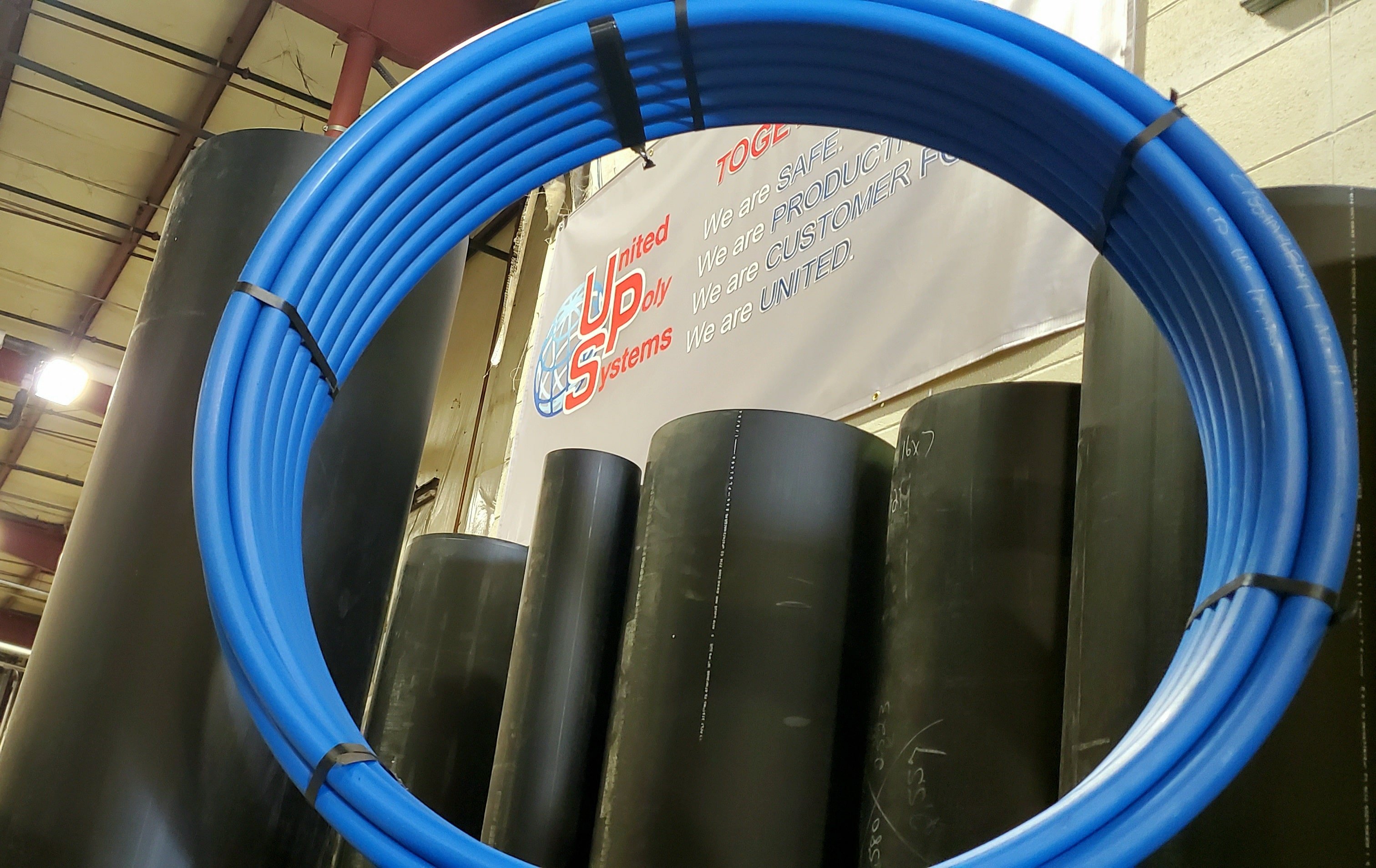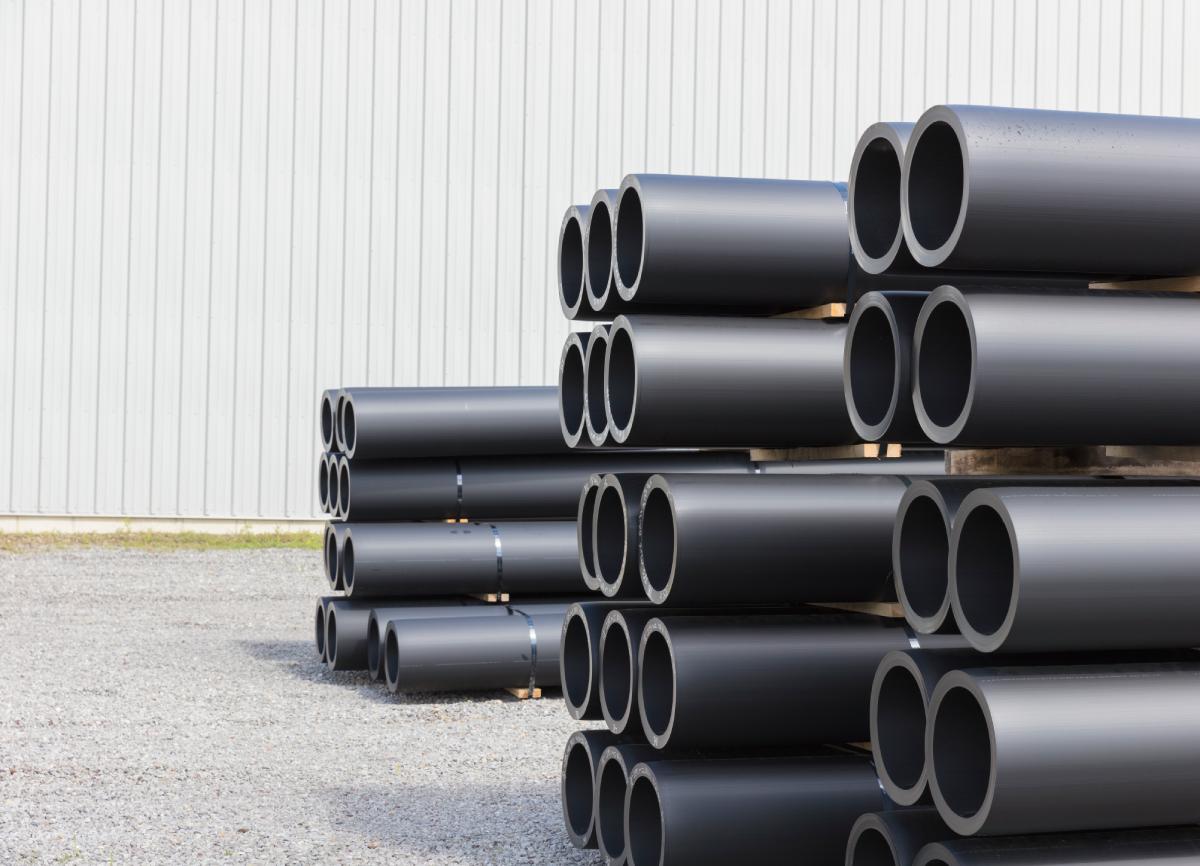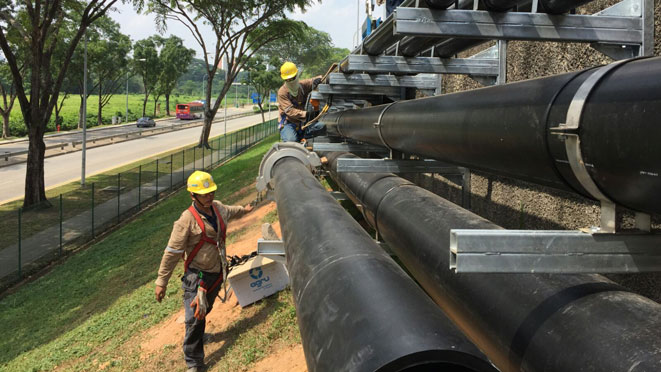Pipeline Manufacturer FAQs: materials, warranties, and testing explained
Wiki Article
Discovering the Leading Pipeline Manufacturers: Quality, Dependability, and Technology
The pipeline manufacturing industry stands at the crossway of top quality, reliability, and development, driven by leading firms such as Tenaris and Vallourec. These manufacturers are not only devoted to creating high-performance materials but are likewise introducing sustainable methods that address contemporary ecological issues (HDPE Pipe Supplier). As we analyze the requirements that specify quality in pipeline services, it ends up being noticeable that the landscape is rapidly progressing. What details advancements are arising, and exactly how are these developments shaping the future of pipeline infrastructure? The solutions may redefine market criteria in ways that are not yet totally recognizedLeading Manufacturers Introduction
In the domain of pipeline manufacturing, several key players become leaders, each contributing significantly to the sector's landscape. Companies such as Tenaris, Vallourec, and JFE Steel have established themselves as frontrunners by constantly supplying high-grade items that fulfill rigorous industry requirements. Tenaris, renowned for its cutting-edge solutions, specializes in seamless and welded pipes, providing primarily to the oil and gas sector. Vallourec, a French international, concentrates on the production of costs tubular remedies, highlighting sustainability and advanced innovation in its manufacturing processes.Likewise, JFE Steel, a major Japanese manufacturer, is recognized for its extensive array of steel pipelines, specifically those utilized in energy and framework tasks. Their dedication to r & d has actually enabled them to generate high-performance products that endure harsh ecological conditions. In addition, companies like U.S. Steel and National Oilwell Varco have broadened their market visibility by expanding their product offerings and enhancing operational performances.
These leading producers not just control the marketplace yet additionally drive innovation within the industry, setting criteria for high quality and dependability that gamers aspire to achieve. Their contributions are vital for meeting the enhancing need for reliable and durable pipeline options worldwide.
Criteria for High Quality Analysis
Quality analysis in pipeline manufacturing depends upon 2 essential criteria: material resilience standards and making process efficiency. Guaranteeing that products fulfill rigorous sturdiness standards is necessary for the long life and reliability of pipes. Furthermore, enhancing the manufacturing process can enhance productivity while keeping premium quality, eventually impacting overall efficiency and security.Material Toughness Requirements
Guaranteeing the durability and dependability of pipeline products is crucial for keeping facilities integrity and operational efficiency. Material sturdiness requirements play a crucial duty in reviewing the top quality of pipes, determining the performance and lifespan of the materials made use of in building and construction. Manufacturers have to abide by a variety of strenuous criteria, including those set by organizations such as ASTM International and the American Oil Institute (API)These criteria review different elements, including deterioration resistance, tensile strength, and exhaustion efficiency. As an example, pipes utilized in harsh environments need materials that can stand up to chemical degradation, while those subjected to high-pressure problems should display outstanding tensile strength.
Furthermore, aspects such as temperature level fluctuations and environmental conditions need to be taken into consideration, as these can significantly affect product actions with time. Manufacturers often utilize innovative screening techniques, including increased aging tests, to simulate long-lasting wear and guarantee that materials go beyond or satisfy industry criteria.
Manufacturing Process Performance
Manufacturers' ability to enhance making process performance is vital for creating high-quality pipes that satisfy stringent industry requirements. Performance in making straight influences cost management, manufacturing timelines, and total product integrity. To accomplish this, leading pipeline manufacturers carry out advanced techniques such as lean manufacturing, automation, and real-time data analytics.Lean manufacturing principles are essential in lessening waste and making best use of source utilization. By streamlining processes and getting rid of redundancies, suppliers can enhance productivity while guaranteeing consistent quality. Automation modern technologies, consisting of robotics and computer numerical control (CNC) devices, play a crucial role in improving precision and reducing human mistake, thus boosting the reliability of the end product.
Furthermore, the usage of real-time data analytics permits makers to keep track of manufacturing processes continuously, allowing them to determine bottlenecks and make timely adjustments. This aggressive approach not only boosts performance yet likewise supports high quality assurance protocols by ensuring conformity with governing requirements.
Dependability in Pipeline Solutions
Dependability in pipeline services is paramount, as it straight affects the security and performance of liquid transport systems. Key variables include the toughness of materials used, adherence to strenuous screening and accreditation standards, and the unification of ingenious material solutions that improve performance. Comprehending these components is crucial for suppliers aiming to supply trustworthy pipeline facilities.Significance of Resilience
Achieving durability in pipeline remedies is vital, as it directly affects the long-lasting efficiency and safety of infrastructure. Durable pipelines are vital for decreasing maintenance costs and decreasing the chance of devastating failings. This integrity is especially important in markets such as oil and gas, water supply, and wastewater administration, where the effects of pipeline failure can be extreme, both financially and environmentally.The products and manufacturing procedures employed by pipeline manufacturers play a substantial duty in figuring out the longevity of the end product. Utilizing high-quality raw products, advanced innovations, and innovative design concepts ensures that pipelines can hold up against different stressors, consisting of stress variations, temperature level variants, and corrosive environments.
Furthermore, the toughness of pipes is very closely connected to their capacity to stand up to exterior factors such as soil movement, seismic task, and chemical direct exposures. Efficient corrosion defense methods, such as layers and cathodic security, further enhance the long life of pipelines, guarding them against damage with time.
Spending in resilient pipeline remedies ultimately converts to raised operational efficiency, lowered downtime, and enhanced safety and security, affirming the critical significance of resilience in modern-day pipeline manufacturing.
Checking and Accreditation Criteria
In the domain of pipeline remedies, extensive testing and certification standards are crucial to assure the integrity and safety of framework. These standards function as standards for examining the performance and toughness of pipeline products and systems, verifying they meet particular regulatory and market needs.Examining processes typically include various methods, consisting of pressure screening, hydrostatic assessments, and non-destructive screening techniques. These evaluations are crucial for determining possible weaknesses or flaws in the materials before they are deployed in real-world applications. In addition, accreditation by identified organizations assurances that suppliers follow established standards, which fosters trust among stakeholders, consisting of specialists, end-users, and designers.
Several top pipeline makers take part in constant tracking and renovation of their testing methods to adapt to evolving market standards and technical improvements. Compliance with criteria such as ASTM, ASME, and ISO not just improves item integrity however also decreases the danger of ecological occurrences connected with pipeline failures.
Innovative Material Solutions
The advancement of innovative material services has transformed the landscape of pipeline manufacturing, enhancing both performance and resilience. Advanced products such as high-density polyethylene (HDPE), cross-linked polyethylene (PEX), and composite products have actually become game-changers, using remarkable resistance to rust, temperature level fluctuations, and stress variants. These products not only extend the lifespan of pipes however additionally reduce maintenance prices, guaranteeing reputable long-lasting efficiency.In addition, suppliers are significantly embracing wise materials that include sensing units for real-time tracking. This technology permits proactive upkeep, considerably boosting dependability by discovering leaks or structural weak points before they rise into crucial failings. The combination of nanotechnology has additionally brought about the growth of coatings that enhance the sturdiness of pipes versus abrasion and chemical direct exposure.
Sustainability is one more crucial emphasis, with manufacturers exploring bio-based compounds and recyclable materials that decrease environmental impact. As governing standards remain to develop, the focus on innovative material solutions ends up being paramount in conference strict safety and security and environmental demands. Ultimately, these developments not only improve the reliability of pipeline systems however additionally contribute to the general effectiveness and sustainability of power transportation facilities.
Technologies in Pipeline Innovation
Advancements in pipeline technology are changing the sector by improving efficiency, safety and security, and ecological sustainability. Recent improvements focus on wise pipeline systems that make use of sensors and IoT innovation to monitor conditions in real time, enabling proactive maintenance and decreasing the risk of failures. These systems can find leakages, stress adjustments, and various other anomalies, permitting fast action and lessening ecological effect.In addition, the growth of advanced materials, such as corrosion-resistant and composite alloys, substantially expands the life-span and integrity of pipelines. Pipeline Manufacturer (American Plastics LLC HDPE Pipeline Manufacturer). These materials decrease maintenance costs and enhance efficiency in rough settings, making them suitable for water, gas, and oil transport
Furthermore, automation and robotics are playing a vital duty in pipeline building and construction and assessment. Drones and robotic devices help with surveys and assessments of hard-to-reach areas, ensuring complete examinations without compromising security.
Additionally, ingenious layouts, such as modular pipeline systems, enable greater adaptability in installation and adjustment, satisfying the vibrant demands of the power field. Together, these technical improvements not just enhance functional efficiency however also add to a more sustainable and resistant pipeline framework, leading the method for a greener future.
Instance Studies of Success
Across numerous sectors, effective implementations of advanced pipeline innovations demonstrate significant enhancements in operational performance and safety and security. One remarkable instance is the implementation of clever pipeline monitoring systems in the oil and gas market, where real-time information analytics have actually decreased leak discovery times by over 50%. This not just decreases environmental risks yet likewise boosts the total integrity of pipeline infrastructure.
Furthermore, a major manufacturer implemented robot examination innovations in its pipeline maintenance procedures, causing a 40% improvement in inspection effectiveness. This strategy has structured upkeep routines and significantly reduced downtime.
These case researches highlight how prominent pipeline manufacturers are leveraging advanced innovations to foster reliability and operational quality, inevitably establishing brand-new requirements for the market. As these successes continue to unravel, they lead the method for further improvements in pipeline manufacturing and administration.

Environmental Sustainability Practices
Often, pipeline makers are focusing on environmental sustainability techniques to mitigate their eco-friendly footprint and boost the longevity of their items. This dedication is reflected in numerous efforts aimed at minimizing waste, conserving energy, and using lasting materials throughout the manufacturing process.
Lots of suppliers are taking on innovative modern technologies that minimize exhausts and power intake. The assimilation of automated systems and energy-efficient equipment aids enhance manufacturing while reducing reliance on fossil fuels. In addition, business are progressively turning to environment-friendly materials, such as recycled metals and bioplastics, which not just minimize the environmental impact but likewise promote a circular economic situation.
In addition, pipeline suppliers are carrying out rigorous lifecycle analyses to examine the environmental implications of their items from creation to disposal. This method allows them to determine opportunities for improvement and foster liable sourcing and waste management methods.
Cooperation with ecological organizations even more enhances these efforts, as producers look for to straighten their procedures with international sustainability objectives. Eventually, these ecological sustainability techniques not only contribute to a healthier earth however also placement makers as responsible leaders in the sector, appealing to environmentally mindful stakeholders and consumers alike.
Future Patterns in Pipeline Manufacturing
As the need for more lasting and reliable infrastructure expands, pipeline manufacturing is poised for substantial advancements that will improve the sector. Key patterns prepared for in the coming years include the combination of innovative products, such as corrosion-resistant and composite alloys, which boost longevity while reducing ecological impact. Manufacturers are likewise anticipated to adopt ingenious production methods, like additive manufacturing and automation, to simplify processes, minimize waste, and reduced costs.The increase of wise pipeline innovations, integrating sensing units and IoT tools, will certainly make it possible for real-time surveillance and anticipating upkeep, consequently enhancing security and functional effectiveness. This digital transformation will not just maximize source administration yet additionally promote conformity with rigid environmental policies.
Sustainability will continue to be a main focus, driving makers to invest in green techniques, including energy-efficient production approaches and reusing efforts. As the global emphasis on environment modification heightens, pipeline producers will certainly require to adapt by establishing options that satisfy both environmental and economic demands.
Regularly Asked Concerns

What Industries Mostly Use Pipeline Products From These Manufacturers?
Pipeline products are mainly made use of in sectors such as oil and water, gas and wastewater administration, chemical mining, construction, and handling. These industries count on effective, resilient, and secure transport of products and liquids.
How Do Manufacturers Make Certain Compliance With International Pipeline Specifications?
Manufacturers ensure conformity with global pipeline standards by executing extensive top quality control procedures, conducting normal examinations, sticking to established governing frameworks, and purchasing employee training to promote understanding and understanding of safety and security and quality demands.What Is the Typical Life Expectancy of Pipelines From Leading Manufacturers?
The ordinary life-span of pipes from leading producers generally ranges from 30 to 100 years, depending on material, ecological problems, and upkeep methods. American Plastics LLC HDPE Pipeline Manufacturer. Regular examinations and adherence to sector standards markedly affect long life and performanceExist Certifications Certain to Pipeline Manufacturing Quality?
Yes, various qualifications exist for pipeline producing high quality, including ISO 9001 for top quality administration systems and API standards specific to pipes. These accreditations guarantee adherence to strenuous security, performance, and ecological requirements within the industry.Just How Do Manufacturers Manage Pipeline Maintenance and Services?
Manufacturers normally execute a proactive upkeep strategy that consists of regular examinations, checking systems for early discovery of problems, and an organized repair service protocol. This technique guarantees pipeline honesty, reduces downtime, and boosts overall functional effectiveness.Quality analysis in pipeline manufacturing hinges on 2 vital standards: material durability requirements and making process effectiveness - Pipeline Manufacturer. Product resilience requirements play a crucial role in assessing the high quality of pipes, dictating the efficiency and life-span of the materials used in building. The products and making procedures employed by pipeline manufacturers play a considerable function in establishing the resilience of the final product. The typical life expectancy of pipes from leading suppliers typically varies from 30 to 100 years, depending on product, environmental problems, and upkeep techniques. Yes, various certifications exist for pipeline producing high quality, consisting of ISO 9001 for high quality monitoring systems and API standards specific to pipelines
Report this wiki page